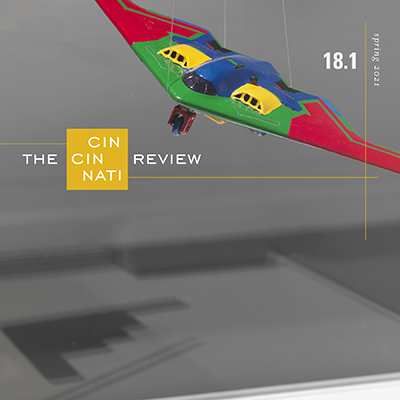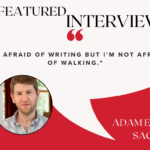1
Teh-chang came home a couple of days after the surgery, wheeled out of the hospital with a cotton bandage wrapped around his head cartoon-style and, even stranger-looking, a white mesh Styrofoam netting gathered into a point on top of that, which made him resemble a delicate fruit packaged for long-distance transportation.
He had survived having his skull sawn open, a surgeon slicing out a tumor over a centimeter and a half in diameter and then putting his head back together. If that were all, it would have been a happy ending. Instead, it was just the beginning.
The brain tumor was not the source but an emissary. Stage 4 lung cancer. The intern just happened to mention the words printed on the chart during his morning rounds. And that was how they found out.
A black hole is a place where the laws of physics as we know them break down. Einstein taught us that gravity warps space itself, causing it to curve. So given a dense enough object, space-time can become so warped that it twists in on itself, burrowing a hole through the very fabric of reality.
The instant you entered the black hole, reality would split in two. In one, you would be instantly incinerated, and in the other you would plunge on into the black hole utterly unharmed.*
Much later, his daughter found the article about black holes. When she read it, she felt a powerful longing. In this reality, he had died and become ash. She knew this to be true. She had been with him when he took his last breath and then stopped breathing forever. She had felt the warmth dissipate from his body over the course of several hours, until he was wrapped in a sheet and taken away. She had touched his ashes with her own hands and rolled tiny fragments of his bones between her fingers.
But what if, as the physicists hypothesize, the universe split?
“There will be many things to happen,” he had written to her in an e-mail during the weeks after the surgery. “Just be quiet and wait and see. I will be all right.”
As you go deeper into the black hole, space becomes ever more curvy until, at the centre, it becomes infinitely curved. This is the singularity. Space and time cease to be meaningful ideas, and the laws of physics as we know them—all of which require space and time—no longer apply.
Immediately after the surgery, he was different. Usually reserved and silent to a fault (in his wife’s opinion), he marveled out loud at how beautiful the nurse was, how incredibly handsome the surgeon. The nurse, a blonde-haired woman dressed all in pink, appeared to be a crew member on a spaceship, part of his abduction to another planet or galaxy. Crying, he asked his wife, “Can I be a writer?” More firmly, he said, “From now on, we only say positive things.” Turning to his son, he observed, “You have big ears.” His wife and daughter and son laughed through their tears.
What happens here, no one knows. Another universe? Oblivion? The back of a bookcase? It’s a mystery.
Before he retired and started writing poetry full-time, he had been a nuclear physicist who studied fusion energy. He had a lifelong interest in theoretical physics, which led naturally to interests in philosophy, religion, and ancient history, and a belief in the likelihood of extraterrestrial life. After the surgery he became obsessed with “the issue of the universe. It is fundamental,” as he wrote in an e-mail to a scientist friend. Of his daughter, he asked insistently, with the manic energy that pulsed through him in those weeks, “Are you Heisenberg or are you Einstein?”
His daughter seemed confused.
He knew she didn’t know anything about Werner Heisenberg, or even Albert Einstein. He wanted to tell her that this was a question concerning his own fate and, indeed, the fate of the universe. Heisenberg’s uncertainty principle posited an underlying unknowability in the universe. In contrast, Einstein believed in an underlying order, that the complete predictability of physical laws determined the course of events. If Einstein was right, following the laws of classical physics, then the laws of the universe could not be altered; his illness would follow its inevitable course, and he would die. If Heisenberg was right, however, following the laws of quantum physics, there were other possibilities: unknown quantities, alternate universes, and multiple realities.
She had studied art and literature and didn’t know anything about physics, though, so he didn’t try to explain. Someday, probably soon, she would see for herself.
When you reach the horizon, you freeze, like someone has hit the pause button. You remain plastered there, motionless, stretched across the surface of the horizon as a growing heat begins to engulf you.
According to an outside viewer, you are slowly obliterated by the stretching of space, the stopping of time and the fires of Hawking radiation. Before you ever cross over into the black hole’s darkness, you’re reduced to ash.
But before we plan your funeral, let’s view this gruesome scene from your point of view. Now, something even stranger happens: nothing.
In the wake of his surgery, his world changed. Everything he encountered was suffused with special significance, and every person could be conversed with. When hot-air balloons drifted close over the house near sunset, as they often did in the spring, taking off from a nearby open field, he ran out to wave to the passengers, still wearing his Styrofoam netting on his head. “They came to see me,” he told his daughter, grinning happily. After each doctor’s visit, he kept the hospital’s paper identification bracelet on his wrist and thrust it at strangers, informing them enthusiastically, “I am a hospital patient, dying of lung cancer!”
You sail straight into nature’s most ominous destination without so much as a bump or a jiggle—and certainly no stretching, slowing or scalding radiation. That’s because you’re in freefall, and therefore you feel no gravity.
After all, the event horizon is not like a brick wall floating in space. It’s an artefact of perspective. An observer who remains outside the black hole can’t see through it, but that’s not your problem. As far as you’re concerned there is no horizon.
Two weeks after the surgery, he ran away from home.
. . .
* All italicized text about black holes is from Amanda Gefter’s article “The Strange Fate of a Person Falling into a Black Hole,” which appeared on BBC Earth’s site in May 2015. Some excerpts are slightly altered from the original.










